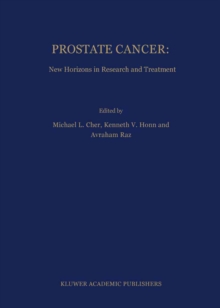
Breast Cancer: Scientific and Clinical Progress : Proceedings of the Biennial Conference for the International Association of Breast Cancer Research, Miami, Florida, USA - March 1-5, 1987 PDF
Edited by Marvin A. Rich, Jean Carol Hager, Diana M. Lopez
Part of the Developments in Oncology series
Description
Effective control of breast cancer depends on three types of research accomplishment -- understanding the disease's origins and progression: successfully applying this knowledge to methods of detection, diagnosis and treatment: and finding ways to make these advances truly available to the public as effectively as possible.
The significant progress that is occurring across this entire spectrum of pioneering investigation is reflected in these proceedings of the 1987 biennial conference of the International Association for Breast Cancer Research.
The first section of the book focuses on oncogenes and chemical effectors that may play key roles in early cell transformation leading to breast cancer.
Research discussed includes identification of specific oncogenes which appear to be involved in the disease, study of their activation and expression, examination of the biological effects of various growth factors isolated from breast cancer cell lines, and investigation of the molecular mechanisms by which estrogens promote and stimulate growth of breast cancers.
The second group of chapters deals with several other complex factors and phenomena which may influence tumor formation in the breast, for example, expression of abnormalities by fibroblasts, disruption of epithelial-mesenchymal interactions, and loss of ability nili to synthesize normal basal lamina resulting in alterations in the extracellular matrix.
Clarification of the processes of normal mammary gland development and differentiation is central to much of this work.
Information
-
Download - Immediately Available
- Format:PDF
- Publisher:Springer US
- Publication Date:06/12/2012
- Category:
- ISBN:9781461317531
Information
-
Download - Immediately Available
- Format:PDF
- Publisher:Springer US
- Publication Date:06/12/2012
- Category:
- ISBN:9781461317531







